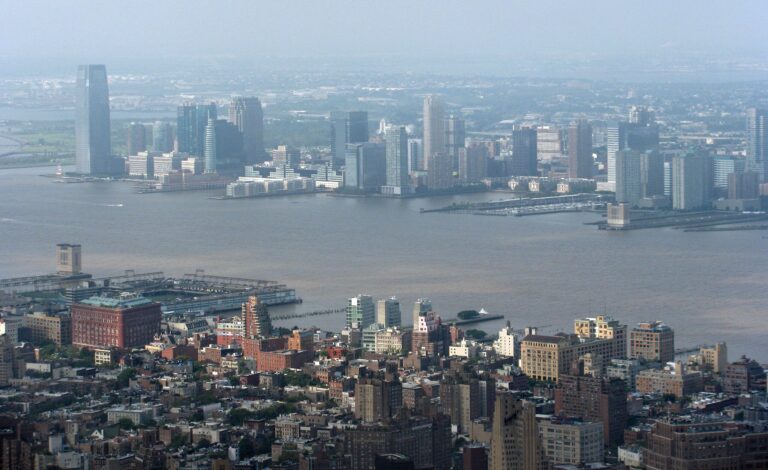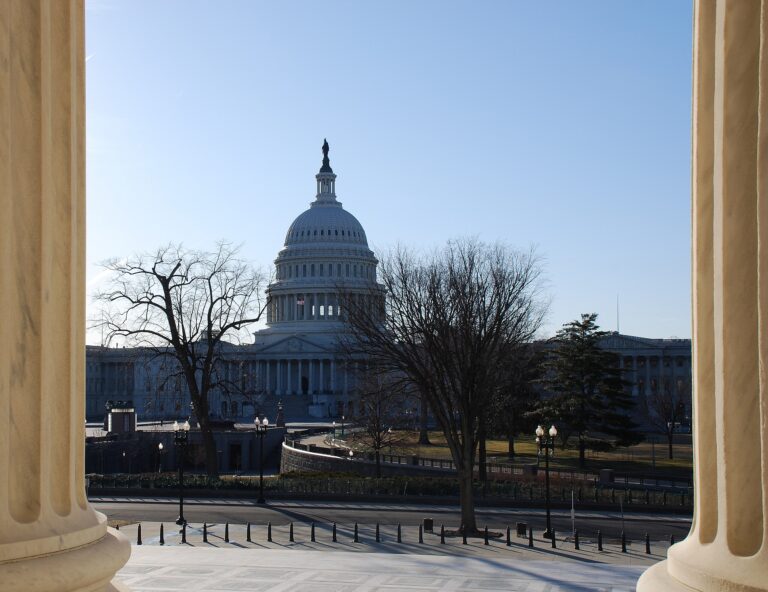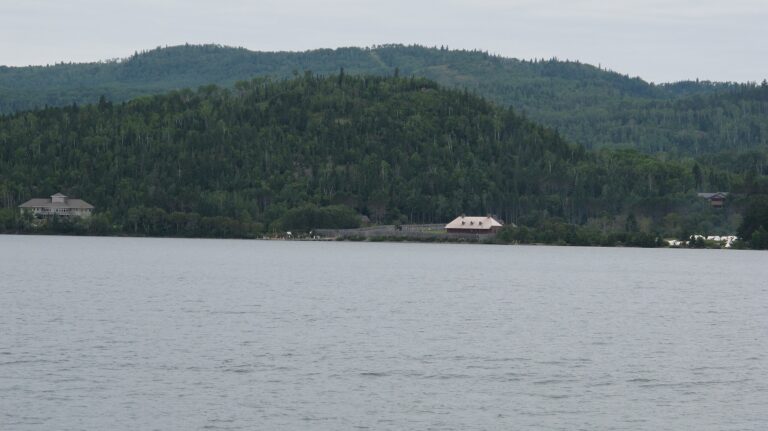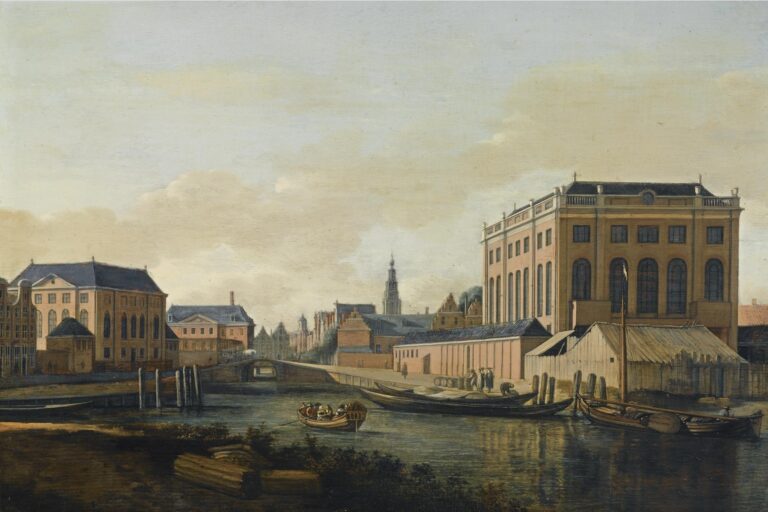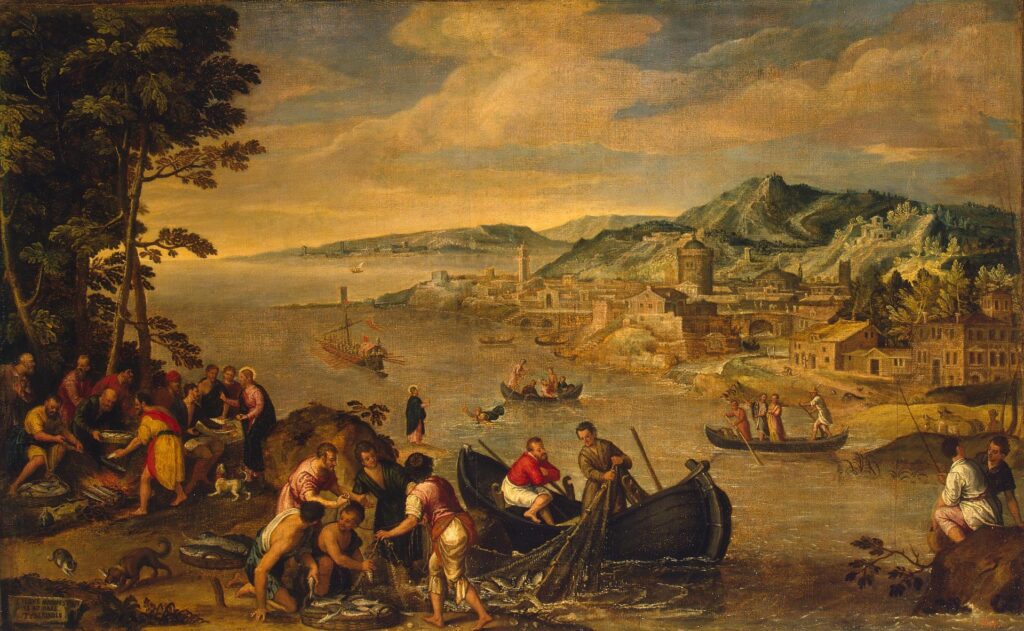
Dominion and Stewardship: Imaging God in Creation
Matthew P. Cavedon
Miraculous Fishing by Lodewijk Toeput (PD-Art)
Does the Book of Genesis authorize human beings to ruthlessly exploit nature? Many environmentalist critics of Christianity, and some Christians who are overly skeptical of environmentalism, think so. However, a careful reading of the key passage where God gives human beings dominion over creation—Genesis 1:28—reveals this to be a misunderstanding. Human dominion is meant to mirror God’s, and God creates life and delights in what he has created. Genesis depicts God as creating human beings to exercise good stewardship for creation. Human nature, too, shows that human beings flourish from doing so. Dominion should not be understood as tyranny over creation, but as love for it.
God blessed them, and God said to them, “Be fruitful and multiply, and fill the earth and subdue it; and have dominion over the fish of the sea and over the birds of the air and over every living thing that moves upon the earth.” (Genesis 1:28)
God’s conferral to human beings of dominion over creation in the Book of Genesis is one of the most suspect biblical texts for environmentalists. It is often seen as authorizing a licentious attitude toward the world’s resources and the harsh subjection of everything to human welfare. According to critics, and some Christians all too willing to condone damage to the environment, Genesis 1:28 ordains an exploitative understanding of creation.
They are wrong. The dominion given to humans in this passage is meant to image divine dominion, which fosters life and delights in the goodness of creation. Scripture shows that this is how God exercises dominion—over all creation, and over human beings in particular. God allows nature its own being, nature rejoices in God’s dominion, and God promises to bring about a new heaven and a new earth in which nature and human beings flourish together. In addition, God’s dominion over human beings is meant for their good life, not their exploitation.
God has made human beings to be good stewards of nature. Human beings need to conserve it in order to survive. It is also necessary to preserve creation so that human beings can relate to it, as this is an essential part of being human. Such an understanding of humanity counsels against exploitative interpretations of Genesis 1:28 in favor of a view where human beings benefit by living harmoniously with a creation that is itself a great good.
Human Dominion must image divine dominion
In Genesis 1:26, God says, “Let us make humankind in our image, according to our likeness.” He continues, “let them have dominion” over creation. This comes a mere two verses before Genesis 1:28, where God charges Adam and Eve with exercising that dominion. Human dominion, then, is inseparable from humanity’s imaging of God, so humans must exercise it as he does.
God’s dominion does not annihilate the freedom and goodness of creation. Rather, God delights in these things. This is implicit in Christian monotheism—which may come as a surprise, as many thinkers believe it is important to see an underlying ontological unity connecting all beings in order to hold an ecological worldview. Some intellectuals even suggest Gaia theories, proposing that the entire cosmos should be understood as a living organism with its own consciousness. Gaia theories can even be pantheistic or panentheistic, identifying the universe with God.
Christianity does not accept pantheism or panentheism. Instead, it professes belief in a transcendent creator, one ontologically distinct from his creation. This doctrine of God is not the same as deism, which proposes a god that is exclusively transcendent and has no ongoing engagement with the universe. The Christian God intervenes in history, providing special care for his people and delivering them from sin, through redemption, into glory.
The personal kind of theism espoused by Christianity is a sounder path for respecting creation appropriately than are its alternatives. This is fairly obvious when compared with deism: a watchmaker who wound up the clock that is the universe and then walked away is not likely to inspire the individual components to show each other deep concern. Pantheism and panentheism more readily support environmentalism, but are not ultimately superior to monotheism in this regard. First, they are not as unambiguously environmentalist as often supposed. Adopting either means collapsing the distinctions between God, human beings, and nature. This does allow for a negative argument in favor of environmentalism: all creatures are equal, so none have the right to degrade any other. But it could just as quickly be met with the rejoinder that the playing field is equal. The universe, “red in tooth and claw,” does not seem to mind wolves eating lambs, bacteria propagating inside of hosts, and trees blocking out the sun at other plants’ expense. Why should human beings alone show restraint for the sake of others? As Friedrich Nietzsche argued, “It is not surprising that the lambs should bear a grudge against the great birds of prey, but that is no reason for blaming the great birds of prey for taking the little lambs.” If all of life is interconnected in some Disney-esque “circle of life,” what difference does the life of one animal—or even one species—make? All that changes are positions in the grand continuum.
Christian monotheism provides more compelling reasons for respecting creation. Genesis 1:31 relates how God called each thing “very good” as he created it. Christians believe that God is the ultimate judge of every life, so loving what he finds good is a good idea. But there is something deeper in monotheism that makes it compatible with robust ecological sensitivity. Christianity teaches that God, the all-powerful creator, stands apart from creation. This means that God has the ability to do anything he pleases, yet he allows for creation to have its own being, its own laws, and its own integrity. God faces the universe in all of his power and still stays his hand, taking in the beauty without assuming it back into himself. Power can choose encounter with the other.
God’s dominion is good for creation
God imbues nature with goodness. “God saw everything that he had made,” Genesis 1:31 reads, “and indeed, it was very good.” This goodness is something the Bible says creatures enjoy, too. Psalm 104:24–26 remarks on how teeming with life creation is, how even the sea beast Leviathan is God’s pet. The Psalmist then marvels at how all creatures “look to [God] to give them their food in due season; when you give to them, they gather it up; when you open your hand, they are filled with good things” (Ps. 104:28).
Creation rejoices in God’s dominion and its own goodness. To quote Psalm 104:29–30, “When you hide your face, [creatures] are dismayed . . . . When you send forth your spirit, they are created; and you renew the face of the ground.” Elsewhere, the Psalmist is more explicit about nature’s delight in God’s rule. “The heavens are telling the glory of God; and the firmament proclaims his handiwork” (Ps. 19:1). Psalm 98:7–9 invites creation to join in a song of praise:
“Let the sea roar and all that fills it; the world and those who live in it. Let the floods clap their hands; let the hills sing together for joy at the presence of the Lord, for he is coming to judge the earth.”
Human dominion must be like this if it is part of humanity’s imaging of God. It must be exercised in such a way that human beings see goodness in creation, take responsible stewardship for other creatures by providing for their needs, and appreciate that every created thing glorifies God. Human dominion cannot contradict God’s dominion, which fosters life.
Neither can it contradict his promise. Scripture’s promises for creation stretch across the Hebrew Bible and the New Testament. It finds beautiful expression in the prophet Isaiah, who foresees the day when “[t]he wolf shall live with the lamb” (so much for Nietzsche!) and “the leopard shall lie down with the kid.” (Isa. 11:6) No creature “will hurt or destroy on all [God]’s holy mountain, for the earth will be full of the knowledge of the Lord as the waters cover the sea” (Isa. 11:9). God’s dominion over creation will culminate in “new heavens and a new earth” (Isa. 65:17) where all life will dwell in harmony.
The prophet Ezekiel, too, proclaims this promise. He sees a river flowing out from underneath the seat of God’s dominion in the Temple, and “when it enters the sea . . . the water will become fresh. Wherever the river goes, every living creature that swarms will live” (Ezek. 47:8–9). Humans will share in this wondrous source of life, fishing their fill from the fresh water (Ezek. 47:10). Notably, though, swamps and marshes will remain salty and wild: not everything is going to be made fit for human habitation (Ezek. 47:11). “On the banks, on both sides of the river, there will grow all kinds of trees for food . . . . Their fruit will be for food, and their leaves for healing” (Ezek. 47:12). Creation will flourish in the time of God’s perfect dominion.
A similar vision appears in the Book of Revelation. Its author sees “the river of the water of life, bright as crystal, flowing from the throne of God and of the Lamb through the middle of the street” of the new Jerusalem (Rev. 22:1–2). It is the same spring of vitality as in Ezekiel:
“On either side of the river is the tree of life with its twelve kinds of fruit . . . and the leaves of the tree are for the healing of the nations” (Rev. 22:2)
This theme finds new expression in the New Testament. Saint Paul writes in Romans 8:21 that “the creation itself will be set free from its bondage to decay,” which was brought about by human sin, and “will obtain the freedom of the glory of the children of God.” Not only human beings but the whole world “has been groaning in labor pains . . . while we wait for adoption, the redemption of our bodies” (Rom. 8:22–23). Elsewhere, Saint Paul says that “God was pleased to reconcile to himself all things, whether on earth or in heaven, by making peace through the blood of his cross” (Col. 1:20).
The Second Letter of Saint Peter picks up on this same theme. The author prophesies an apocalypse wherein “the heavens will be set ablaze and dissolved, and the elements will melt with fire” (2 Peter 3:12). Creation and human beings will share the same doom: “the day of the Lord will come like a thief” for both, leading to radical changes (2 Peter 3:10) But this day will not spell the end of either’s existence. Instead, together with nature, “we wait for new heavens and a new earth, where righteousness is at home” (2 Peter 3:13). In this passage too, God’s dominion will culminate in harmonious communion among all creation, including human beings. In the words of Pope Benedict XVI (echoing Fr. Pierre Teilhard de Chardin):
“At the end we will have a true cosmic liturgy, where the cosmos becomes a living host.”
The Bible describes God’s dominion over creation—and by extension, the dominion he gives to human beings—as one of goodness, delight, fruitfulness, and the promise of perfect harmony. Genesis 1:28 is not license for human beings to ride roughshod over nature. It is a call to share in the Creator’s joy with his creation and participate responsibly in creation’s hope for what is to come.
God’s dominion over human beings is good
One could also consider scriptural depictions of God’s dominion over human beings in particular. God’s sovereign dominion over all nations appears throughout the Bible. Psalm 103:19 declares, “The Lord has established his throne in the heavens, and his kingdom rules over all.” Psalm 97 begins, “The Lord is king!”, and continues at verse 9: “[Y]ou, O Lord, are most high over all the earth.” As the people bring gifts to build the Temple, King David praises God: “Yours, O Lord, are the greatness, the power, the glory, the victory, and the majesty; for all that is in the heavens and on the earth is yours; yours is the kingdom, O Lord, and you are exalted as head above all” (1 Chron. 29:11).
What is God’s dominion over human beings like? Does he use them for his own aggrandizement or see them as raw material to be appropriated? No. While “the rulers of the Gentiles lord it over them, and their great ones are tyrants over them,” (Matt. 20:25) this is not God’s dominion. “[T]he Son of Man came not to be served but to serve,” and among the faithful, “whoever wishes to be great . . . must be your servant, and whoever wishes to be first . . . must be your slave” (Matt. 20:26–27). Loving service and aid are the true marks of dominion.
God’s dominion brings many gifts. God’s law makes the Psalmist “wiser than [his] enemies, for [God’s law] is always with [him]” and gives him “more understanding than all [his] teachers, for [God’s] decrees are [his] meditation.” (Ps. 119:98–99) “How sweet are your words to my taste, sweeter than honey to my mouth!,” he exclaims (Ps. 119:103). “The law of your mouth is better to me than thousands of gold and silver pieces” (Ps. 119:72). However, divine dominion is good because of more than just the divine law: “The Lord is my rock, my fortress, and my deliverer, my God, my rock in whom I take refuge, my shield and the horn of my salvation, my stronghold,” reads Psalm 18:2. Dominion means God’s protective presence.
God’s dominion is life and its absence is death. “[T]he wages of sin is death,” reads Romans 6:23, “but the free gift of God is eternal life in Christ Jesus our Lord.” “[L]iving is Christ,” testifies Paul from his prison cell in Philippians 1:21. Death is the consequence of rejecting God’s dominion through sin, according to Romans 5:12. It is the rejection of divine dominion that saps vitality: God tells Adam “you are dust, and to dust you shall return” in Genesis 3:19 only after the first sin. By contrast, in Genesis 2:15, prior to the fall, God places Adam in the garden of Eden “to till it and keep it.” Pope Francis insightfully comments that this verse “implies a relationship of mutual responsibility between human beings and nature.”
What a contrast the Bible paints of the difference between God’s life-giving dominion and death! As a result of sin, the prophet Ezekiel sees a valley full of dry bones without any life in them (Ezek. 37:1–2). But even sin is not powerful enough to overcome God’s dominion. God’s promise to the bones through Ezekiel is, “I will cause breath to enter you, and you shall live. I will lay sinews on you, and will cause flesh to come upon you, and cover you with skin, and put breath in you, and you shall live; and you shall know that I am the Lord” (Ezek. 37:5–6 (emphases added)). The return of God’s dominion brings renewed life: “Even though I walk through the darkest valley . . . . my cup overflows,” says Psalm 23, because “[t]he Lord is my shepherd.” (Ps. 23:1, 4–5) God, then, rules his people through loving service. His law is a cherished gift and his aid is the greatest defense of all. To abide by God’s dominion is to dwell in life and not death. It is to be fruitful and complete.
Which kind of dominion are human beings supposed to exercise over nature: the destructive tyranny God rejects or the loving care he shows? The Bible is clear: human beings image divine dominion when their rule over creation is one of love, care, protection, and vitality, not exploitation and degradation unto death. Just as the human being flourishes under the dominion of God, so too must creation flourish under human dominion.
Humans benefit from living in creation
Divine dominion provides the model for the dominion held by human beings. The very attributes of the human person provides a second reason to exercise dominion generously and lovingly. Human reason points out two human needs with regards to creation: the need to conserve it in order for human beings to survive, and the need to preserve it so as to relate to it. Both are necessary for human life—one at the level of mere survival, the other at the level of being truly human.
Human beings must conserve nature to survive
One of the most important developments in human culture over the past half-century has been growth in environmental consciousness. Pope Benedict XVI even refers to this change as “a cry for fresh air which must not be ignored or pushed aside.” Life is more fragile than human beings understood previously, and industrialization has brought with it considerable threats to creation that modern science is still just beginning to understand. This was first recognized with regard to water. By the time of the late-nineteenth and early-twentieth centuries, people saw that pollution could damage waterways used for navigation. Then, regions grappled with river-rerouting efforts by certain cities that reduced the drinking water available to others. In time, people learned that waterborne illnesses can turn ecological interconnectedness into a lethal threat, spreading pathogens. More recently, science has demonstrated how interconnected all aquatic ecosystems are. Distant wetlands remove dangerous toxins from rivers and provide homes for migrating birds. Harm to a small creek can mean that a large river miles away suffers degradation. Attacks on water-based pests can hurt life in the skies.
Air, too, is now understood to be interconnected. Emissions from automobiles and power generation are threatening the global climate, resulting in rising sea levels, increased desertification, and rising potential for conflict over dwindling water resources. The mere act of spraying an aerosol can contribute to holes in the atmosphere that cause cancer. Smokestacks produce chemicals that become acid rain, poisoning lakes.
When human beings pollute nature, they threaten their own ability to live. As Pope Francis observes, human beings have “distorted our mandate” to exercise dominion, causing “the originally harmonious relationship between human beings and nature” to become “conflictual” and a risk to continued human survival.
Humans must relate to nature to be fully human
Mere biological necessity is not the only reason why human nature requires good stewardship of creation. Human nature’s fulfillment includes relating to other beings. Human beings bear God’s image, and God—the Trinity—is a loving communion of persons relating to one another and to the whole universe. Human beings must relate to the universe, too.
This mandate inheres in human nature by way of the love that comes naturally for human beings. St. Thomas Aquinas teaches that God apprehends the whole universe as its maker and governor, so when he wills something, it is for the common good of all. Every gift he gives is intended to further the good of the entire universe. Everything naturally loves whatever community is the basis for the shared goods it enjoys. For instance, virtuous citizens love their republics and are even willing to make sacrifices to see it flourish. Body parts make sacrifices for the welfare of the whole body. Nothing exists by itself. Each being is a part of some greater whole that it naturally loves.
The whole universe is God’s reason for giving the many natural gifts human beings and all other creatures enjoy. “[E]very single creature, each in its own way . . . naturally loves the common good of the whole more than its own particular good” because the whole’s good is the basis for every particular good. The universe, then, is the greatest (other than God himself) of all the wholes to be loved by every creature. Loving all of creation is part of the natural love for the whole that inheres in being human.
These observations stress the similarities and closeness between human beings and the rest of creation. But human beings alone are given “dominion over” nature. What is it that makes human beings have a special role? If every single creature loves the universe as a whole, then the human difference is this: human beings have an especially high way of loving.
Josef Pieper says “[e]very living thing lives in a world, in ‘its’ world, and ‘has’ a world in which it lives.” In turn, a world is a field of relations. All living things relate to a world from which they derive nutrition, sensory input, and other necessities for life. But not all fields of relation are the same size. Many creatures can only relate to things they cab use. Pieper gives the example of the crow, which has far better eyesight than human beings. It can see grasshoppers far below it on the ground because it registers them as food. However, if a blade of grass passes over the grasshopper’s midsection, the bird can no longer see it. Why not? It is no longer identifiable as something useful.
More sophisticated beings have a greater power of establishing relations. The crow can relate to a distant grasshopper through the power of perception, something a lowly plant is not capable of. More sophisticated beings have richer worlds. Human beings, alone of all known animals, are spiritual beings, in that they can relate to the entirety of reality—to every other being. In fact, spirit itself is “the power and capacity to relate itself to the totality of being.” Spirit does not have a world: it exists in the world.
God is spirit: he relates to all things. The human spirit is the image of God in the human being. Human beings bear God’s image by relating to all of creation. This is what sets humans “apart” from nature: the capacity to love all of it. And this defines what it means to be human. Dominion over creation, then, cannot be an escape from the world, but only an entering more fully into relationship with it. To relate to creation is to become more human, to more perfectly bear God’s image. Turning again to Pieper, there is a necessary balance between relating outward and having an inner life:
“The more embracing the power with which to relate oneself . . . the more deeply that power needs to be anchored in the inner self of the subject so as to counterbalance the step it takes outside.” The very act of relating to other beings makes humans more the kind of being capable of relating.
Being human is one of the fruits of living in the midst of a good creation. As the naturalist E. O. Wilson writes from a secular (but spiritually awe-struck) perspective:
“to explore and affiliate with life is a deep and complicated process in mental development. To an extent still undervalued in philosophy and religion, our existence depends on this propensity, our spirit is woven from it, hope rises on its currents.”
Loving creation as a whole and in each of its parts helps fulfill human nature, and deepening one’s spirit requires relating to the whole world and every other being. In the immortal words of Fyodor Dostoyevsky’s Elder Zosima:
Love all of God’s creation, love the whole, and love each grain of sand. Love every leaf, every ray of God’s light. Love animals, love plants, love every kind of thing. If you love every kind of thing, then everywhere God’s mystery will reveal itself to you. Once this has been revealed to you, you will begin to understand it ever more deeply with each passing day. And finally you will be able to love the whole world with an all-encompassing universal love.
This, too, is what it means to bear God’s image and hold dominion over all creation. ♦
This paper was first presented at Faith and the Environment, hosted by the Center for Muslim-Christian Studies Oxford.

Matthew P. Cavedon is the Robert Pool Fellow in Law and Religion at the Emory University School of Law. He is the author of From the Pope’s Hand to Indigenous Lands: Alexander VI in Spanish Imperialism (2024).
Recommended Citation
Cavedon, Matthew P. “Dominion and Stewardship: Imaging God in Creation.” Canopy Forum, May 22, 2025. https://canopyforum.org/2025/05/22/dominion-and-stewardship-imaging-god-in-creation/.
Recent Posts






